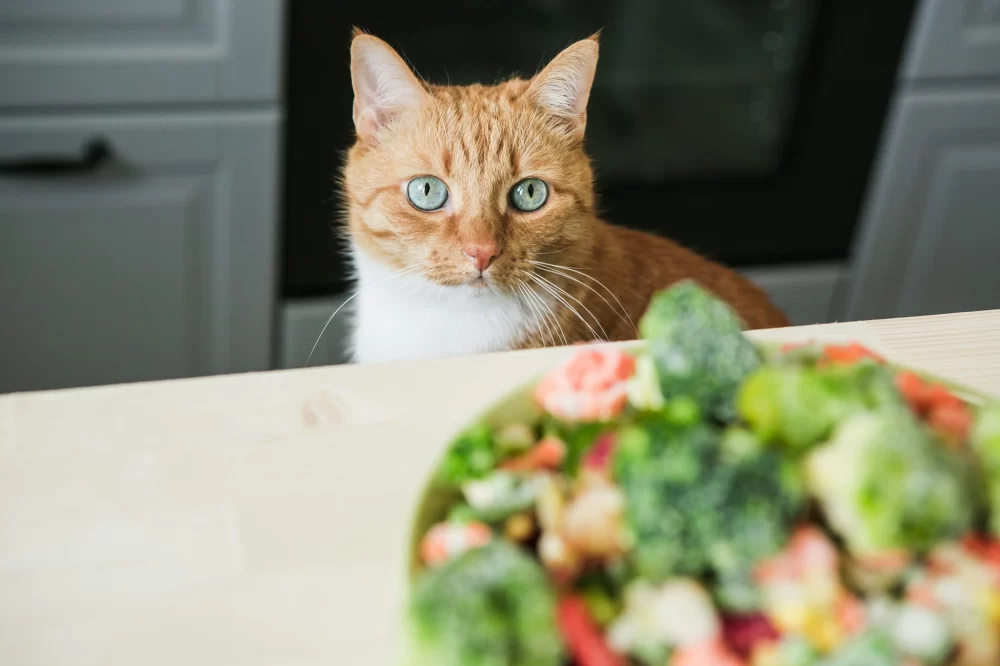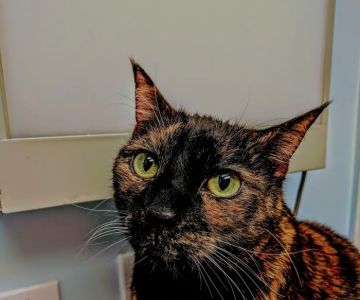- Can Cats Eat Broccoli?
- Health Benefits of Broccoli for Cats
- Possible Risks of Broccoli for Cats
- How to Safely Feed Broccoli to Your Cat
- Expert Recommendations for Cat Nutrition
Can Cats Eat Broccoli?
Broccoli is a popular and nutritious vegetable for humans, but what about cats? The question of whether cats can eat broccoli without harm often arises among pet owners looking to diversify their pets’ diet. While cats are obligate carnivores, meaning their diet primarily consists of animal-based proteins, some plant-based foods like broccoli can occasionally be introduced in moderation. But before adding any new food to your cat's meal plan, it's important to understand both the benefits and risks involved.
Health Benefits of Broccoli for Cats
Broccoli is rich in vitamins, antioxidants, and fiber. These nutrients, although primarily suited for humans, can provide certain health benefits for cats when given in small amounts. For instance, broccoli contains Vitamin C, which boosts the immune system, and Vitamin K, important for blood clotting. Additionally, the fiber content can aid in digestion and prevent constipation, which can be a common issue in some cats.
It’s important to note that while broccoli can offer these benefits, cats cannot fully process plant-based foods like they can animal proteins. However, small amounts of broccoli are unlikely to cause harm and can provide a tasty and healthy treat that’s low in calories.
Possible Risks of Broccoli for Cats
While broccoli can be a nutritious snack, there are some risks to be aware of. For one, too much broccoli could cause gastrointestinal upset. Cats have sensitive digestive systems, and excessive fiber or the cruciferous nature of broccoli might lead to bloating, gas, or diarrhea. Therefore, moderation is key. Moreover, some cats may be allergic or have sensitivities to certain plant-based foods, including broccoli. Always observe your cat for any signs of discomfort after introducing a new food.
Another potential risk is choking, especially if the broccoli is not properly prepared. It’s crucial to cook the broccoli (steaming is recommended) and cut it into small, manageable pieces to avoid any choking hazards. Raw broccoli can be harder to digest and might be more difficult for your cat to chew.
How to Safely Feed Broccoli to Your Cat
If you’ve decided to offer your cat a taste of broccoli, there are a few guidelines to follow. Firstly, cook the broccoli lightly—steaming is the best method as it helps retain the nutrients while making it easier for your cat to digest. Avoid adding any seasoning, as spices like garlic and onions are toxic to cats.
Next, chop the broccoli into small, bite-sized pieces. Start with a small amount to see how your cat reacts, and gradually increase the serving size if there are no negative side effects. Ensure that broccoli makes up only a tiny fraction of your cat’s overall diet. It should never replace the high-protein, animal-based food that your cat requires to stay healthy.
If your cat enjoys broccoli, you can occasionally offer it as a treat. However, don’t make it a daily habit, as the majority of your cat's diet should come from a balanced, meat-based food source to meet their nutritional needs.
Expert Recommendations for Cat Nutrition
When it comes to feeding your cat, it's always best to prioritize their natural dietary needs. Cats are obligate carnivores, so their primary food source should be animal protein, such as chicken, beef, or fish. However, it’s okay to give them an occasional vegetable treat like broccoli, as long as it’s done safely and in moderation.
At Hidden Brook Veterinary, we offer expert advice on how to ensure your cat’s diet is balanced and nutritious. Whether you're looking for the best food options, dietary supplements, or need guidance on introducing new foods, we can help. Always remember that when in doubt, consult with your veterinarian before making significant changes to your cat’s diet.












